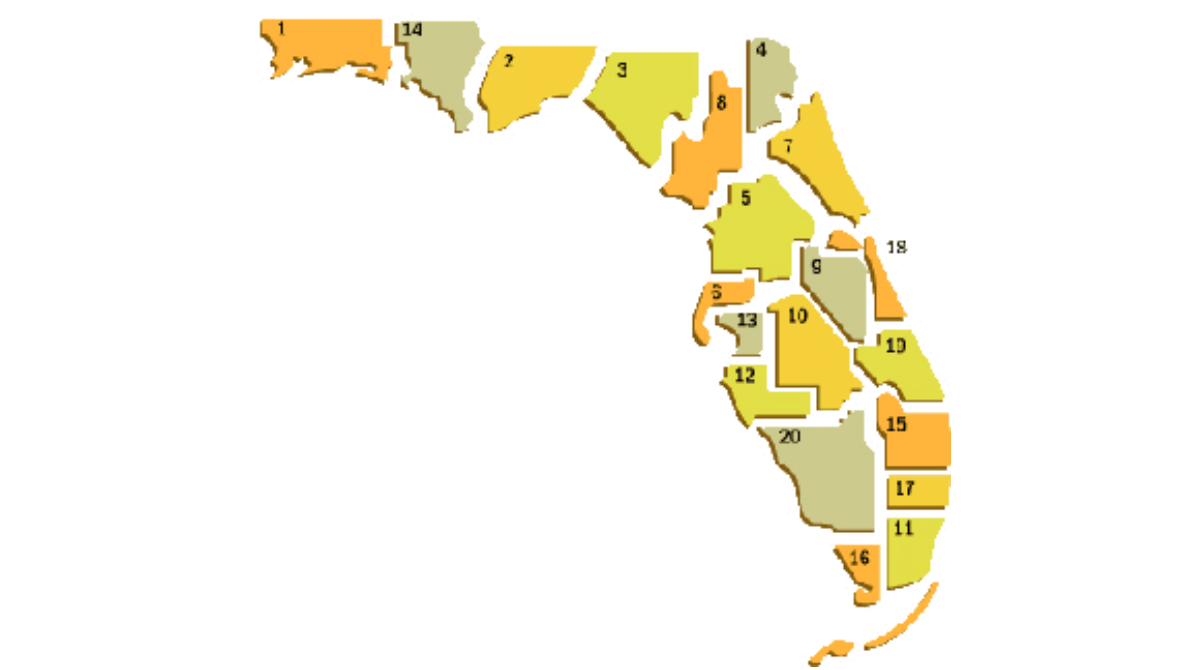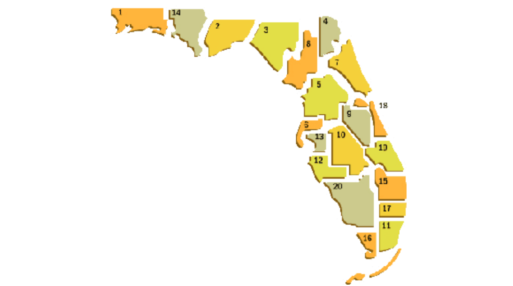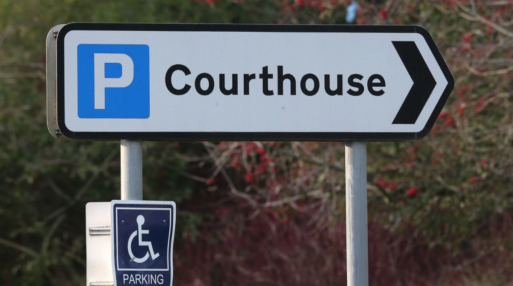Josh and his team proved their track record. I hired him at 9am and they appeared for me by 1pm the same day. Highly contested paternity case, turned dependency nightmare. He faught hard in a short time and got the results I needed. My baby back. Josh and his associates are kind, patient, diligent and aggressive. They are human. I trusted them through the whole process. I was kept informed and they faught with passion. I’d rehire josh and his team any day. It was well worth the money spent. – Rochelle

The Florida Court System & Family Law
The Florida Court System & Family Law | Brodie Friedman Family Law
In 1973 Florida reformed its confusing court system. It replaced the diverse court jurisdictions into a two-tier system, circuit and county. The Florida Constitution, Article V, Sec. 1, enabled the Florida Legislature to establish a circuit court system for each judicial circuit. The number of judges varies per circuit according to the caseload and population of each particular judicial circuit. Circuit court judges must meet certain minimum standards and are elected for a six-year term. A chief judge is selected to administrate the circuit courts.
These courts are considered courts of general jurisdiction because most criminal and civil cases begin there.

The 20 circuit courts cover the following areas:
First Circuit – Escambia, Okaloosa, Santa Rosa, and Walton
Second Circuit – Franklin, Gadsden, Jefferson, Leon, Liberty, and Wakulla
Third Circuit – Columbia, Dixie, Hamilton, Lafayette, Madison, Suwannee and Taylor
Fourth Circuit – Clay, Duval and Nassau
Fifth Circuit – Citrus, Hernando, Lake, Marion and Sumter
Sixth Circuit – Pasco and Pinellas
Seventh Circuit – Flagler, Putnam, St. Johns, and Volusia
Eighth Circuit – Alachua, Baker, Bradford, Gilchrist, Levy, and Union
Ninth Circuit – Orange and Osceola
Tenth Circuit – Hardee, Highlands, and Polk
Eleventh Circuit – Miami-Dade
Twelfth Circuit – DeSoto, Manatee, and Sarasota
Thirteenth Circuit – Hillsborough
Fourteenth Circuit – Bay, Calhoun, Gulf, Holmes, Jackson and Washington
Fifteenth Circuit – Palm Beach
Sixteenth Circuit – Monroe
Seventeenth Circuit – Broward
Eighteenth Circuit – Brevard and Seminole
Nineteenth Circuit – Indian River, Martin, Okeechobee and St. Lucie
Twentieth Circuit – Charlotte, Collier, Glades, Hendry and Lee

The Florida circuit courts have general trial jurisdiction for all cases not under the county courts purview by statute. The circuit courts hear appeals from county courts as well. Therefore, the circuit courts serve a dual role as the highest trial courts and the appellate court for the county courts.
The circuit courts have jurisdiction over civil disputes in excess of $30,000.00, disputes involving estates, persons adjudicated as incapacitated, juvenile cases, family law, criminal prosecutions of all felonies, tax disputes, actions to determine the title and boundaries of real property, declaratory judgment actions, and injunctions, among others.
The circuits are also empowered to issue extraordinary writs of certiorari, prohibition, mandamus, quo warranto, and habeas corpus, among other things.
Although Florida does not have a Probate and Family Court per se, approximately 40% of all circuit court cases are family court cases. For this reason, among several others, the Florida Supreme Court has made a number of important decisions that essentially establish a Family Court within the circuit court system.
The Supreme Court has ruled beginning in 1991, that families should be able to have all of their disputes resolved in the most effective and efficient way possible. They also ruled that one judge, if practicable, should handle the entire matter. As a result of these precedents and others that followed, the Family Court has jurisdiction over the following;
✔️Annulment
✔️Support unconnected with dissolution of marriage
✔️UIFSA
✔️Custodial care of and access to children
✔️Proceedings for temporary or concurrent custody of minor children by extended family
✔️Adoption
✔️Name change
✔️Declaratory judgment actions related to premarital, marital [marital], or post-marital agreements
✔️Civil domestic, repeat violence, dating violence, stalking, and sexual violence injunctions
✔️Juvenile delinquency
✔️Termination of parental rights
✔️Juvenile dependency
✔️Emancipation of a minor
✔️CINS / FINS
✔️Truancy
✔️Modifications and enforcement of orders

The Florida Supreme Court has also, through its steering committees, developed judicial tool kits to assist jurists hearing these cases.
It is clear that regardless of the arrangement and structure of the court system and its jurisdictions, there is a need for specialty courts in the family law area. Not only because of the sheer volume of court filings but also because of the complex and unique nature of these cases. This is especially true where life-altering decisions concerning children are made.
The Brodie Friedman legal team has great familiarity with the Florida Family Court system. We provide clients with exceptional advice and personalized attention, by making your case our immediate priority. If you’re in need of excellent legal representation our team is ready to help.
With over 30 years of combined experience, Jason Brodie Esq. and Joshua Friedman Esq. will guide you toward realistic goals and provide committed advocacy toward achieving them. They are known throughout South Florida for dedicated client service, tenacity, and success in complex divorce litigation involving property division, child custody, and spousal support.
To get a better understanding of the qualities our reputation is built on, contact our office in Boca Raton to schedule your initial phone consultation (561) 392-5100



 Mon – Fri, 9AM – 5PM
Mon – Fri, 9AM – 5PM
 1675 N. Military Trail, Suite 730 Boca Raton, Florida 33486
1675 N. Military Trail, Suite 730 Boca Raton, Florida 33486